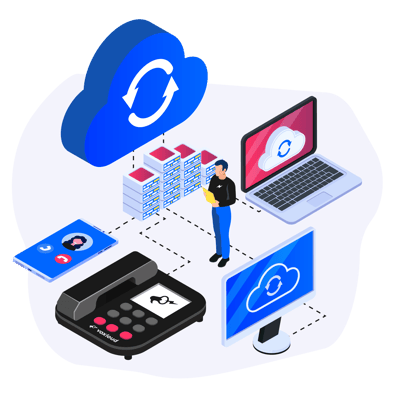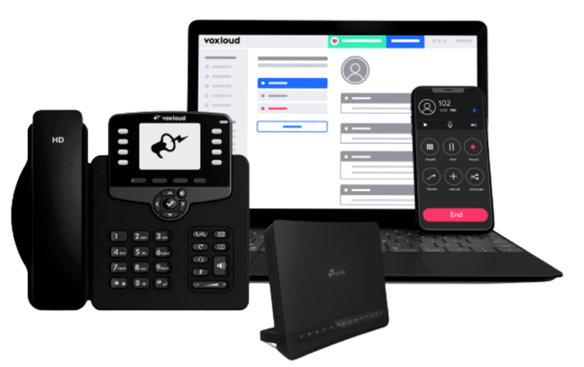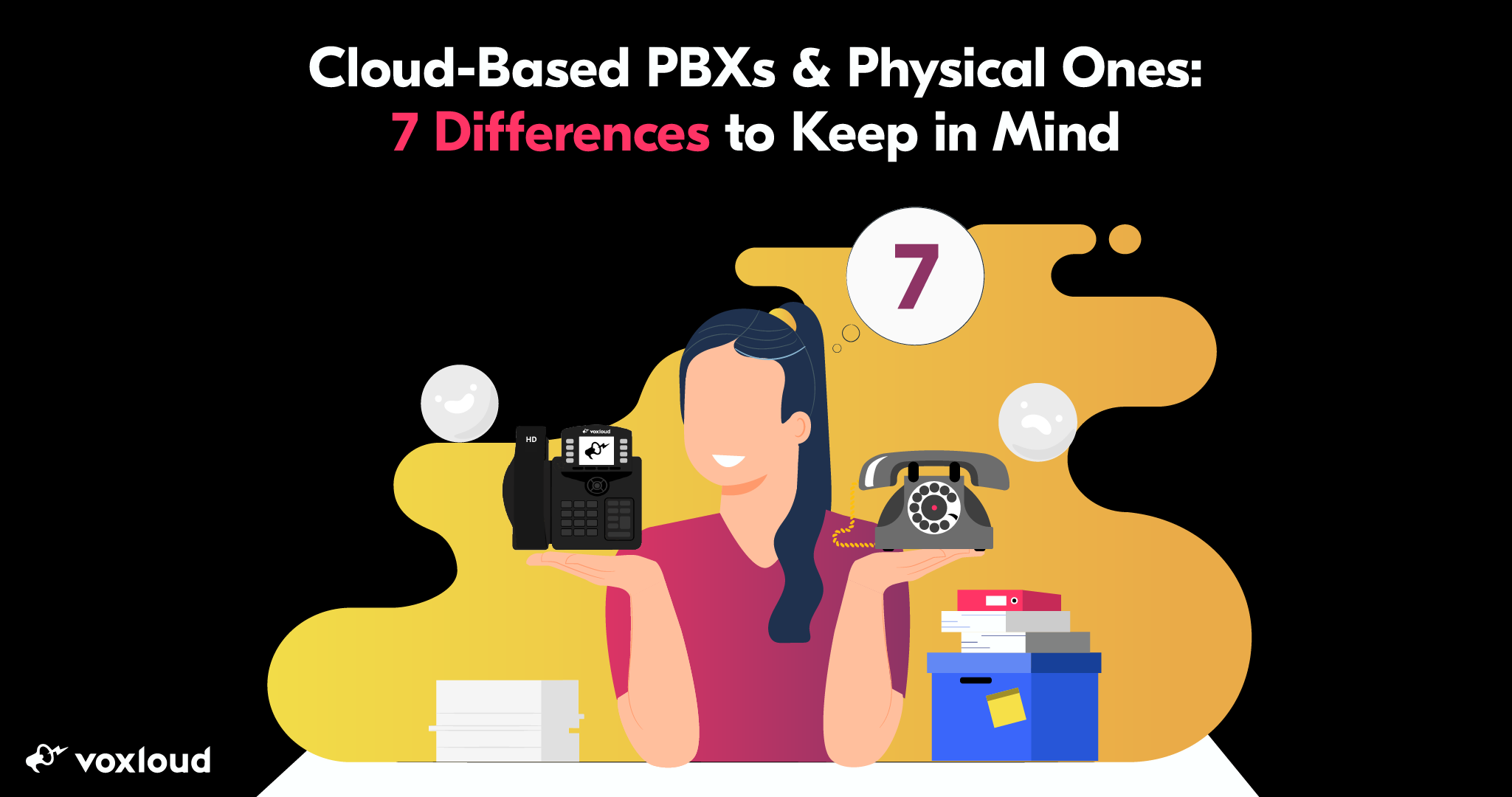Replacing your physical, hardware-based PBX with a cloud-hosted setup is a big investment, and may even seem like a worrying change.
Given that your phone system is going to be hosted externally — rather than at your own organization — it’s easy to feel anxious about how the shift will affect internal processes.
|
Summary 7 - Remote working and operation Voxloud Cloud-Based Phone System: what are the advantages for you? |
But that begs the question: What differences will a cloud PBX really bring?
Of course, the big one is that you’ll no longer have physical hardware to power your telephony service.
Beyond that, however, you’ll see a lot of changes in your communications — all of them for the better.
Keep reading to discover the 7 biggest ways a cloud-based PBX differs from a physical one and what each difference means for your business processes.
With physical PBXs, adding or removing users takes time and even money because doing so means manipulating physical connections, typically requiring on-site technicians.
But in the cloud?
There, adding or removing users is only a matter of making a few changes to your PBX’s main operating software, saving your organization significant time, effort and money any time it has to change in size.
Better still, being in the cloud means customizing your PBX plan is simpler than ever, as changing any details from your apps to your dial plan can be done without physical setups.
2 - Built-in failover
If an on-site PBX crashes, there’s typically no other way to make or receive phone calls at the organization.
Meanwhile, using a PBX in the cloud gives you automatic failover: a system where, if one PBX fails, the cloud system will automatically switch over to an operating one until the original is fixed.
Simply put, using a cloud-based PBX will ensure you have more security and uptime compared to a physical one.
3 - More intuitive interfaces
While making changes to a physical PBX typically is so complex it requires an IT expert, changing a cloud-based PBX is far simpler.
The reason why again comes down to cloud PBXs using software rather than hardware: instead of changing raw lines of hardware-operating code, a cloud PBX can usually be manipulated through a user-friendly graphical interface.

In many cases, end-users can change the functions and behavior of their cloud-based PBX entirely on their own, directly from their laptops.
4 - Lower costs
If you’re not using physical hardware for your PBX, you’re not paying extra upfront costs for installation or ownership.
That translates to significantly lower expenses on your phone system both at the time of your upgrade and the years afterward, regardless of how many users you put on the system.
5 - Easier maintenance

6 - Greater security
7 - Remote working and operation

Upgrading your business communication tools is a quick and easy way to bring up your productivity as well.
With a Voxloud PBX, you’ll get cloud-based telephony, instant messaging, voicemail and more available from any location via online apps.
That’s in addition to the plentiful software integrations Voxloud has on offer, letting you create a personalized work setup that puts your most important digital tools in one place — all while being intuitive enough to use with minimal training.

Voxloud Cloud-Based Phone System: what are the advantages for you?
Just to give an idea, here is a preview of the advantages of Voxloud phone system:
- You can work anywhere without geographical restrictions
- Activation in 59 seconds, without technicians or installers
- Organize team video conferences
- No hidden costs
Do you want to find out more and see what Voxloud can do for you?
Click here and talk to one of our Specialists 👇
Best regards,





